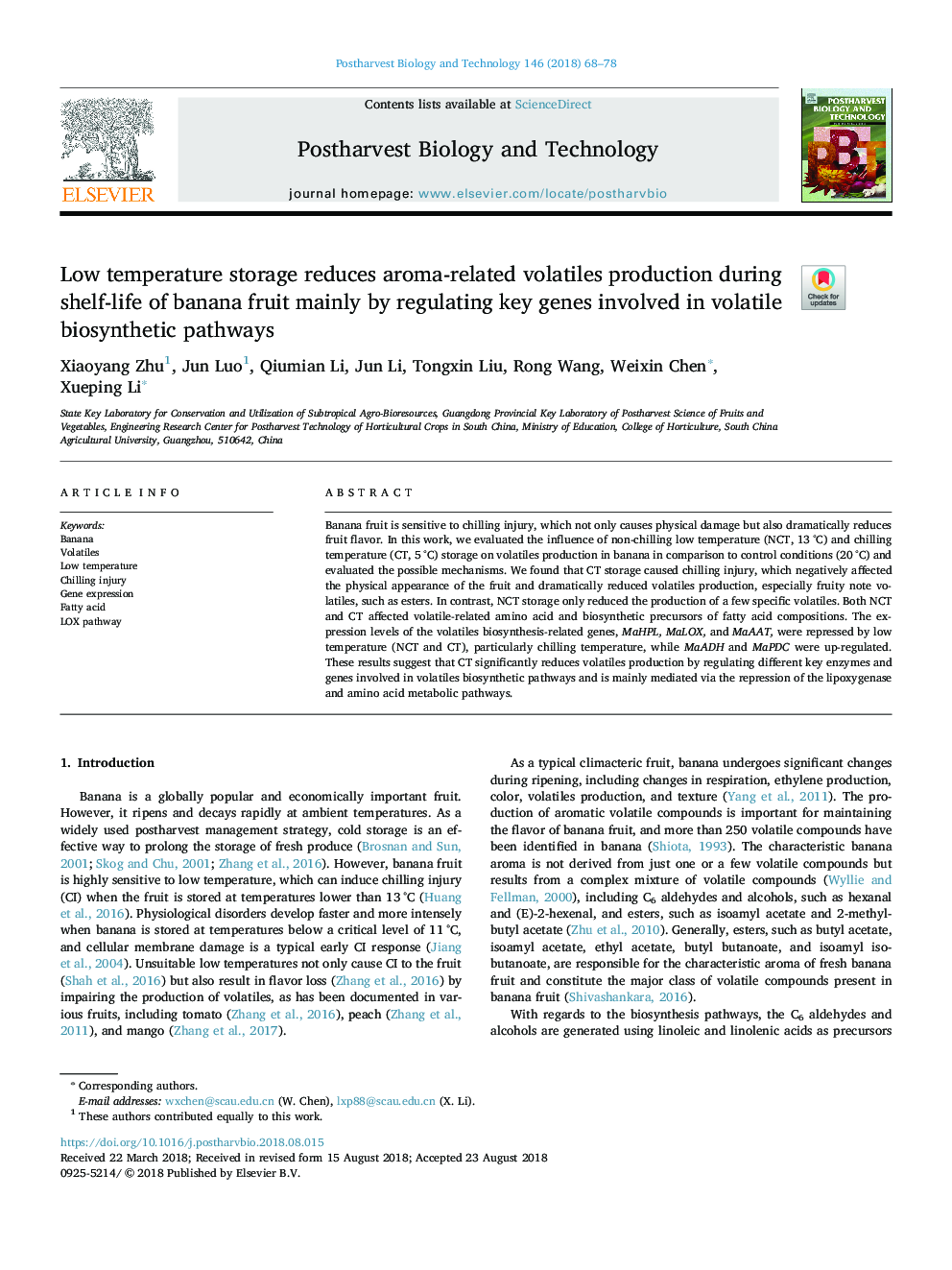| Article ID | Journal | Published Year | Pages | File Type |
|---|---|---|---|---|
| 10117100 | Postharvest Biology and Technology | 2018 | 11 Pages |
Abstract
Banana fruit is sensitive to chilling injury, which not only causes physical damage but also dramatically reduces fruit flavor. In this work, we evaluated the influence of non-chilling low temperature (NCT, 13â°C) and chilling temperature (CT, 5â°C) storage on volatiles production in banana in comparison to control conditions (20â°C) and evaluated the possible mechanisms. We found that CT storage caused chilling injury, which negatively affected the physical appearance of the fruit and dramatically reduced volatiles production, especially fruity note volatiles, such as esters. In contrast, NCT storage only reduced the production of a few specific volatiles. Both NCT and CT affected volatile-related amino acid and biosynthetic precursors of fatty acid compositions. The expression levels of the volatiles biosynthesis-related genes, MaHPL, MaLOX, and MaAAT, were repressed by low temperature (NCT and CT), particularly chilling temperature, while MaADH and MaPDC were up-regulated. These results suggest that CT significantly reduces volatiles production by regulating different key enzymes and genes involved in volatiles biosynthetic pathways and is mainly mediated via the repression of the lipoxygenase and amino acid metabolic pathways.
Related Topics
Life Sciences
Agricultural and Biological Sciences
Agronomy and Crop Science
Authors
Xiaoyang Zhu, Jun Luo, Qiumian Li, Jun Li, Tongxin Liu, Rong Wang, Weixin Chen, Xueping Li,
